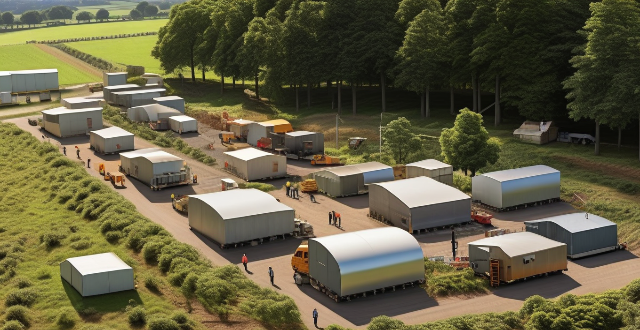Challenges and opportunities for developing countries in the carbon trading market include lack of infrastructure, legal and regulatory hurdles, market access and information asymmetry, capacity building needs, economic growth and investment, technology transfer and innovation, environmental sustainability, policy influence and leadership.

Challenges and Opportunities for Developing Countries in the Carbon Trading Market
Challenges:
Lack of Infrastructure
- Access to Technology: Many developing countries lack the necessary infrastructure to support carbon trading, such as advanced monitoring systems and data management tools.
- Financial Resources: There is often a shortage of financial resources to invest in carbon reduction projects or to establish effective carbon trading platforms.
Legal and Regulatory Hurdles
- Clear Policies: The absence of clear policies and regulations related to carbon trading can hinder participation and transparency in the market.
- International Compliance: Developing countries may struggle with meeting international standards and compliance requirements for carbon offset projects.
Market Access and Information Asymmetry
- Barriers to Entry: Smaller players from developing countries might face barriers to entry due to complex procedures and high transaction costs.
- Information Disparity: There can be a significant gap in information between developed and developing nations, leading to unfair trade practices.
Capacity Building Needs
- Technical Expertise: There is a need for capacity building in terms of technical expertise and understanding of the carbon market mechanisms.
- Negotiation Skills: Weaker negotiation skills can result in unfavorable deals for developing countries within the carbon trading arena.
Opportunities:
Economic Growth and Investment
- New Industries: Carbon trading can spur new industries focused on renewable energy and sustainable practices, leading to economic growth.
- Attracting Foreign Investment: Developing countries can attract foreign direct investment by offering carbon offset projects that align with global sustainability goals.
Technology Transfer and Innovation
- Advanced Technologies: Collaboration with developed nations can lead to technology transfer, enhancing local capabilities in areas like renewable energy and emission reduction techniques.
- Innovation Spur: The need to compete in the carbon market can drive innovation, as companies seek more efficient ways to reduce emissions and create sellable carbon credits.
Environmental Sustainability
- Green Growth: Participation in the carbon market encourages green growth strategies that benefit both the environment and the economy.
- Biodiversity Conservation: Some carbon offset projects, like reforestation or wetland restoration, can contribute to biodiversity conservation efforts.
Policy Influence and Leadership
- Global Voice: Active participation allows developing countries to have a stronger voice in international climate change discussions and policymaking.
- Local Impact: Successful carbon trading initiatives can serve as models for other regions, enhancing a country's leadership role in environmental issues.
By strategically addressing these challenges and leveraging the opportunities presented by the carbon trading market, developing countries can position themselves for sustainable growth while contributing to global efforts to mitigate climate change.